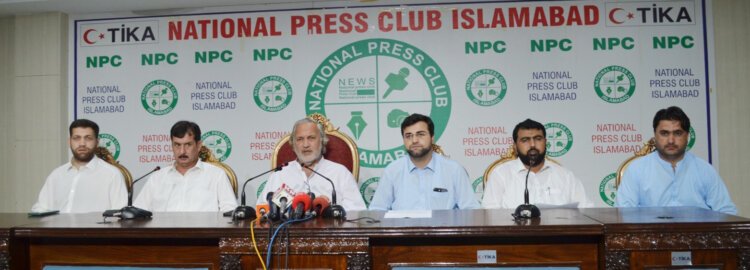In a powerful press conference at Islamabad’s National Press Club, former federal minister and senator Hameedullah Jan Afridi stood shoulder-to-shoulder with tribal business leaders to denounce a proposed 10% sales tax on industries in FATA and PATA. His message was loud and clear: “This tax is unjust, and we will not remain silent.”
Afridi, who once represented the tribal districts in Pakistan’s National Assembly, labeled the proposal not just unfair but an outright violation of human rights. “You’re talking about taxing regions that have seen nothing but war, destruction, and economic collapse,” he said. “It’s inhumane to demand revenue from ashes.”
The proposed tax, part of the federal budget for 2025, has stirred deep resentment in communities that are still reeling from the aftermath of terrorism and decades of underdevelopment. Afridi argued that many factories in these areas have already shut down due to insecurity and lack of basic infrastructure. “Instead of offering support or rebuilding opportunities, the government is squeezing the very breath out of these struggling businesses,” he said.
He didn’t mince words when criticizing the government’s priorities either. “The elite are rewarded, the poor are punished,” he added, calling for the immediate withdrawal of the tax proposal. According to him, enforcing this tax will lead to job losses, economic despair, and potential unrest — not to mention an economic loss far greater than any revenue it hopes to generate.
Afridi also slammed the Federal Board of Revenue for lacking data on the tribal industrial sector, saying, “How can you tax what you don’t even understand?” Instead, he proposed setting up industrial zones, fixing broken infrastructure, and addressing security issues first.
If the tax isn’t rolled back, Afridi warned that tribal traders and business communities will unite in protest — on every forum, on every stage, across the nation.



